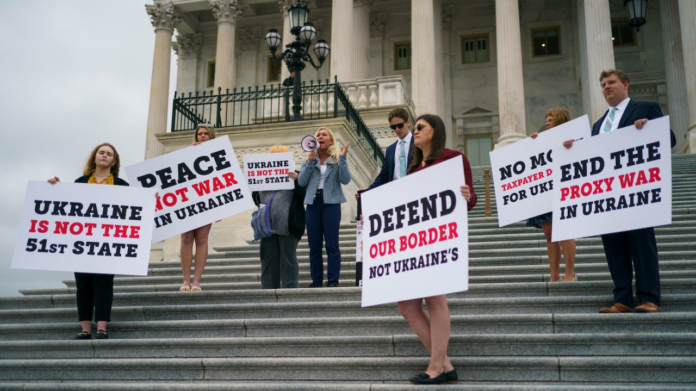Over the last few months, Ukrainian forces have slowly regained territory in the Russian-occupied regions in southern and eastern Ukraine. To date, the Ukrainians have reclaimed 54 percent of Russian-occupied land, and Ukrainian forces continue to make progress.
But as Ukraine continues this success, others are becoming impatient. According to reports, some Westerners are pressuring Kyiv to speed up its counteroffensive in southern and eastern Ukraine. Others have pushed for forced negotiations between Ukraine and Russia, believing that this is the best chance to end the war, even if it benefits Russia’s ambitions.
Unlike the Ukrainian counteroffensive in the spring of 2022, which saw the Ukrainians swiftly push the Russians out of northern Ukraine, the counteroffensive in the south and east has been a lot slower. Russian forces have fortified their positions in these regions, where Ukrainian soldiers are reporting deep trenches and other barriers that stretch for miles.
In addition, the Russians have planted hundreds of kilometers of minefields in the Russian-occupied regions. These obstacles have delayed Ukrainian progress in the region as Ukrainian forces are removing the barriers and other hazards before their troops advance. In other words, the Ukrainians are making calculated decisions in the south and east to ensure that they avoid as many casualties as possible. Morale within Ukraine remains high, but the loss of life is real.
Now, a new pressure has emerged. While the international community still insists it stands firmly behind Ukraine, recent events suggest that future aid for Ukraine is in jeopardy. This pressure is misguided and misinformed.
Last week, Poland announced that it would impose a ban on Ukraine’s grain imports, citing as justification the interest of Polish farmers. In response, Ukraine said it would submit a complaint to the World Trade Organization, upsetting the Poles. Poland’s prime minister in turn announced that Poland would no longer send weapons to Ukraine, although the government subsequently walked back his comments. Ukrainian President Volodymyr Zelensky is now working with Polish President Andrzej Duda to reverse this decision.
Meanwhile, support for aid to Ukraine in the U.S. appears to be waning. One of the hold-ups for the 2024 government spending bill was aid to Ukraine. House Republicans are split over assistance to Ukraine.
Events in Poland and the U.S. are early warning signs for Ukraine. They suggest a weakening of support, and even that some elected officials are willing to risk continued support for Ukraine in exchange for political favorability amongst voters against Ukraine assistance. Public opinion polls on aid to Ukraine have also seen a decline in the U.S. and Europe over time.
This is especially troubling ahead of next year. Aside from the U.S. presidential election, other Ukrainian allies and partners such as Belgium, Finland, Germany, Romania, and the United Kingdom will host local and regional elections. Far-right and populist political parties within Europe are on the rise, and these groups have often opposed aid to Ukraine.
Depending on the outcome of the elections in these countries, the globe could have a very different political makeup next year. In other words, current support for Ukraine cannot be taken for granted, and there is no guarantee that this will last beyond next year.
If support for Ukraine wanes in 2024, Russia could force a peace settlement with Ukraine. The international community might pressure the Ukrainians into negotiating and signing an agreement favorable to Russia. Such negotiations would condemn millions of Ukrainians to Russia’s brutal occupation in southern and eastern Ukraine. In addition, this would allow the Russians to regroup and re-strategize. Assuming that they would have learned from their previous errors, the Russians could launch a new invasion of Ukraine, and with the international community no longer motivated to support Ukraine, this could result in Russia making further advances. At that point, the international community would have failed to help Ukraine defend itself, and then the billions of dollars in humanitarian, financial, medical, and defense aid would be called into question.
Given all this, Ukraine must win the war against Russia in 2023. And Ukraine is currently gaining ground in the southern and eastern occupied territories.
The defeat of Russia would send a clear message to authoritarian rulers across the globe that they “must respect the sovereignty and territorial integrity of their neighbors,” and that they will be punished to the fullest extent if they violate international law.
Throughout the war, the Ukrainians have never asked for foreign soldiers to fight their war. They have asked for Western weapons and assistance to help them in their own fight.
The progress and resilience they have demonstrated over the past 20 months has shown that they are more than capable of winning this war. It is time to finish the job.
Mark Temnycky is an accredited freelance journalist covering Eurasian affairs and a nonresident fellow at the Atlantic Council’s Eurasia Center.


